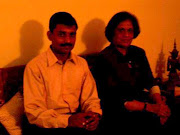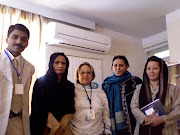(Excerpts from a News Source)
No state in
Just two years ago, a tidal wave swept J. Jayalalithaa’s party off the electoral map during the general elections. Her strident attacks on “Sonia Maino” fell flat. More seriously, the government employees rebelled against her, alienated as they were by her action to break their strike only the year before the general elections. This proved critical as Tamil Nadu has the highest per capita ratio of government employees in
The last minute tie-up with the Bharatiya Janata Party proved to be a non-starter, alienating the sizable religious minorities against her in a state where Christians and Muslims together make up 11 per cent of the electorate. To add to this, the Dravidian ideologues were railing against her, following the enactment of measures to block religious conversion and the ban on animal sacrifice in temples. It is an amazing turnaround; one rarely seen in recent times but the present election is poised at knife-edge. The Centre for the Study of Developing Societies survey went so far as to say that the polls in the state are “too close to call”. Despite a slender lead of two per cent in the vote share of the ruling All India Anna Dravida Munnetra Kazhagam- led alliance, the result could tilt either way. Irrespective of whether she loses or wins, the chief minister has made this a battle worth watching. Placed in perspective, she has converted a huge vote deficit of 2004 into a minor surplus. If this trend continues, she might even look forward to a simple majority for her own party with no crutches from her allies.
There have been similar contrasts in recent years between Lok Sabha verdicts and state assembly elections. In 1998, Digvijay Singh in Madhya Pradesh led the Congress to a second term in office though his party lost the subsequent Lok Sabha elections in the state. Lalu Prasad and his wife performed a similar feat in
But there are two crucial differences in Tamil Nadu. One is a generational issue. This is almost certainly the last time M. Karunanidhi will lead the Dravida Munnetra Kazhagam, a party he has been a member of since its foundation in 1949, to battle. This may well prove to be his Achilles heel: his heir apparent and son, M.K. Stalin, lacks popular acceptance. This has forced the veteran to clarify publicly that he will be chief minister after his party wins at the hustings.
The other has been a significant feature of the Tamil Nadu polity for the last two years. Jayalalithaa has crafted her policies to defuse disaffection among the very sections that bolted from her party in 2004. The arrest of the sankaracharya of Kanchi was well publicized to reaffirm the belief that religious leaders were not above the law. Less publicity was given to rescinding the law on conversions, or to the expansion of the free meal scheme in temples to churches and dargahs. There was also a rapprochement with the powerful government employees’ unions.
The turning point came with the tsunami in December of 2004. Contrary to knee-jerk press reports specifically in the audio-visual media at the time, the state government handled itself with considerable alacrity and speed. A similar drill was in place during the floods the following year. Jayalalithaa’s opposition to the Sethusamudram project taps into genuine fears of the fisher folk about their livelihoods.
Jayalalithaa’s other masterstroke was the timing of the bicycle gifted to high school girl students. In her first hundred days in office, in 2002, she announced a programme to give a cycle to every Dalit girl. Two years ago, this was extended to all girl students in Class XI and XII. It is important to note that these students will comprise a significant chunk of first generation voters now that voting begins at the age of eighteen.
This is also perhaps the first time in many years that a chief minister is campaigning by highlighting her performance. The opposition is anxious enough to promise free colour television sets and rice at two rupees a kilogram to the poor. To be sure, the DMK has a formidable lineup of allies and is fighting hard. Its main bastions lie in north Tamil Nadu where its ally, the Pattali Makkal Katchi, is also strong. Further sources of support include the left and the Congress. Both are localized but in this contest every seat and vote will count.
History is testament that the incumbent usually loses power in Fort St George. In recent times, only the late M.G. Ramachandran managed the feat of never losing a single assembly poll. Yet the legacy of the past weighs equally heavily on the DMK. When E.V. Ramaswami Naicker announced that he was marrying in order to beget an heir, C.N. Annadurai founded the DMK as a revolt against the idea that power flowed through lineage. It is ironical that Karunanidhi’s own party now has a line of succession that runs from father to son.
It is here that the chief minister’s choice of allies shows a shrewd political mind. V. Gopalsami or Vaiko left the parent party in 1994 protesting against dynastic politics. He retains a thin layer of supporters across the state. Equally crucial are the Dalit Panthers, a militant party led by T. Thirumavalavan. This is the first time that a Dalit party has such a prominent role in a larger alliance. Both parties compete with specially tailored welfare measures for the poor and have their own blend of growth and welfare.
The choice is still a very important one. Five more years of the AIADMK will mean continuity, and this will shake up the UPA coalition. Karunanidhi is banking on the arithmetic of alliances to bring him back to power one last time. Its maths versus performance. This election looks like a cliffhanger though a come back for the ruling party may well be on the cards.












1 comment:
Rice all the way
By the second week of March, it appeared as if AIADMK was going to win by a comfortable margin, but now, at the end of April with 10 days to go for the elections, the writing is on the wall. DMK is going to come back to power and ADMK bag about 50 seats. The reasons
1. Karthik and his forward Bloc are not going to win any seat, but will garner 3000 to 7000 votes in each consistuency and most importantly 100 % of Forward Bloc’s votes are going to come from AIADMK
2. Vaiko’s vote bank included two groups. One Telugu speaking people and a sizeable propotion of that is going to vote for Vijayakanth now. The second group of Vaiko’s vote bank was people who voted against ADMK as well as DMK. They are now going to vote to Vijayakanth
3. When DMK announced Rice at 2 rupees a kilo, ADMK and MDMK were ridiculing that and told that it is impossible. But after 10 days, ADMK announces that they will give 10 kilos free. This is a single factor that is responsible for the MOOD SWING Over the past 2 weeks
4. In the end result, ADMK is going to win in the northern parts and DMK is going to have a landslide victory in the southern districts (considered a ADMK stronghold)
Post a Comment